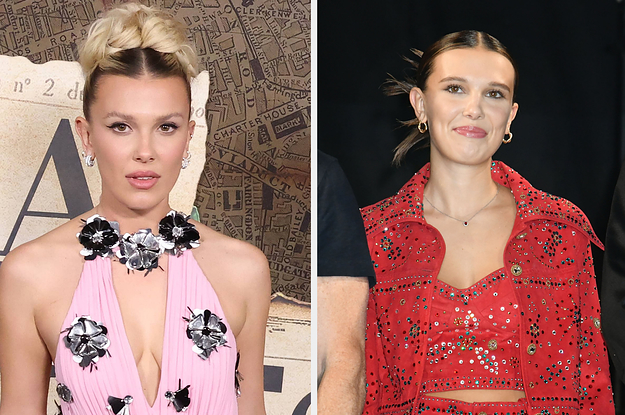
NEW YORK (AP) — Palestinian artist Nida Sinnokrot, one of 18 artists receiving the 2023 Soros Arts Fellowships from the Open Society Foundations on Tuesday, says that art provides hope and resilience, even in the midst of war.
“It’s our duty to find the strength to keep the despair at bay in the face of the unimaginable,” said Sinnokrot, who is the co-founder of Sakiya, a Palestinian academy of agrarian traditions and contemporary art, and a faculty member in Massachusetts Institute of Technology’s Art, Culture, and Technology Program. “We have to, as artists, find the courage to disrupt convention, practice the spreading of hope and cultivate new stories and imaginaries that challenge divisive binaries.”
Members of this year’s class of Soros Arts Fellows, including Sinnokrot, will receive $100,000 in unrestricted funding from Open Society Foundations to develop a public art project that confronts climate change with community-based solutions in the next 18 months, said Tatiana Mouarbes, Open Society’s Team Manager for Culture, Art, and Expression.
“There’s a clear need for bold action, for justice and for equity-based solutions to ensure a more regenerative and life-sustaining world,” said Mouarbes, adding that “systems of global colonialism, white supremacy and capitalism have long stripped the environment of its natural resources.”
At a time when many in philanthropy are reevaluating priorities — including Open Society Foundations, as the nonprofit founded by billionaire philanthropist George Soros changes under the new leadership of his son, Alex — Mouarbes said artists’ work can be just as impactful as other more traditional investments. This year’s class of Soros Arts Fellows is the largest since the program launched in 2018.
“We firmly believe that art is not only an essential driver for social change, but that robust, diverse and fortified arts and culture landscapes are prerequisites for open, just and inclusive societies everywhere,’ she said. ”Art is transformative in so many ways, in expanding political and collective consciousness, in transforming and challenging and providing alternatives to oppressive power structures and ideologies, and for creating momentum for change.”
New York-based artist Jordan Weber, another of the 2023 Soros Arts Fellows, said he was thrilled to be part of the group because the foundation works hard to support art that creates direct action, rather than simply “talking about the problems in our communities.”
“Individuals who are implementing arts that are really effective, they’re treating the cause of the problem,” said Weber, who will plant an acre of conifer trees in Detroit as part of a remediation project to counter pollution from nearby factories producing automobiles, while also engaging the community to enjoy the open space and learn about environmental justice. “I feel like we’re on the cutting edge of that. … This is the launchpad of something new — a new realm of direct action in the arts.”
Molemo Moiloa also plans to incorporate community action in her art project in Johannesburg, South Africa, for her Soros Arts fellowship. Moiloa said her project is a reaction to the weariness many younger South Africans currently feel, as the hopes generated by Nelson Mandela’s inauguration as the country’s first Black president in 1994 have dimmed.
“Particularly since the pandemic, we’ve been hit really, really hard — a lot of the people who were kind of just keeping it together aren’t anymore,” Moiloa said. “The idea of preparing for collapse sounds a bit dramatic, but it’s also about using it as an opportunity, as a moment to think about a kind of economic and political system that wasn’t really built for everybody.”
Her project “The Ungovernable” will help people connect with the land and teach them strategies to survive uncertain times, combining an area for urban farming and community centers that allow “reconnecting with traditional and indigenous knowledge systems.”
Sinnokrot’s project “Storytelling Stones: How far does your mother’s voice carry?” also involves finding inspiration from “ancestral knowledges systems” to develop more nuanced and sustainable approaches to complex issues, including climate change. He wants to build Palestinian stone shelters known as mintar and give them new uses, including as “an acoustic chamber, that can resonate with the environment and our oral histories.”
Despite the ongoing Israel-Hamas war, Sinnokrot said he still plans to build his project in Palestine, though he declines to say where.
“One of the reasons I still feel hope is that there is powerful solidarity around the world that embraces this ethos,” he said. “And that’s what’s so amazing about this year’s (Soros Arts Fellows) and their communities. Soros and its Open Society initiative is supporting a global commons, and that is precisely what it takes to change the world.”
___
The 2023 Soros Art Fellows are:
Bilia Bah, of Guinea; Cannupa Hanska Luger, of the Mandan, Hidatsa, Arikara, and Lakota tribes in the United States; Carolina Caycedo, of Colombia and the United States; Chemi Rosado-Seijo, of Puerto Rico; Dalton Paula, of Brazil; Deborah Jack, of St. Maarten; Fehras Publishing Practices, the collective of Kenan Darwich and Sami Rustom, both from Syria and based in Germany; Ixchel Tonāntzin Xōchitlzihuatl, of the United States; Jordan Weber, of the United States; Martha Atienza, of the Philippines; Molemo Moiloa, of South Africa; Mónica de Miranda, of Portugal; Nida Sinnokrot, of Palestine; Omar Berrada, of Morocco; Rijin Sahakian, of Iraq and the United States; Sari Dennise, of Mexico; Yto Barrada, of Morocco.
___
Associated Press coverage of philanthropy and nonprofits receives support through the AP’s collaboration with The Conversation US, with funding from Lilly Endowment Inc. The AP is solely responsible for this content. For all of AP’s philanthropy coverage, visit https://apnews.com/hub/philanthropy.







